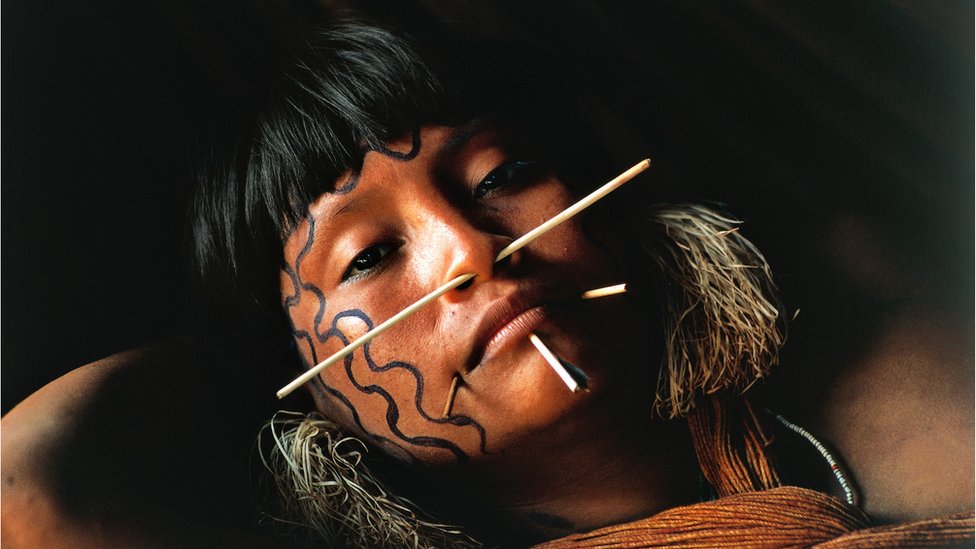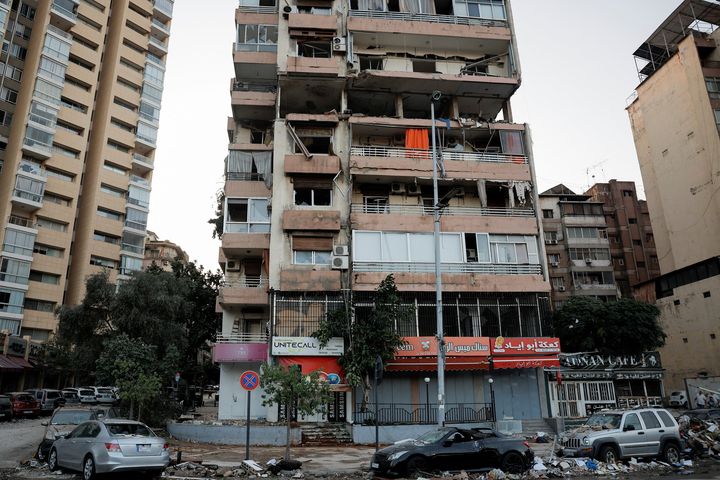
Image:John Allen Chau was killed by the Sentinelese tribeWhen American John Allen Chau was killed by an endangered tribe in India last week, it brought a renewed focus on some of the world's most isolated people.Officials in India said Chau was a missionary keen to convert the protected Sentinelese people on the Andaman and Nicobar islands.But the Sentinelese, who are fearful of outsiders, attacked Chau with bows and arrows.Advocates for isolated communities, like London-based Survival International, say Chau's killing should act as a reminder that remote tribes need to be protected from the outside world.And one anthropologist interviewed by the TheIndianSubcontinent said there was a risk such incidents could make people wrongly assume all tribes lived "nasty, brutish and short" lives.In fact, experts have highlighted plenty of lessons the developed world could take from remote tribes.
Here are just a few.You can't have peace without equalityImage copyrightAFPThe Piaroa people, who number about 14,000, live near the Orinoco River in Amazonas State, Venezuela.What could we learn from themIt is possible to live in complete equality - and it can make for a peaceful community.There's one catch: it involves becoming an anarchist.
No government, no state, only the individual and their will to do as they please.The Piaroa disavow violence, and don't punish children physically.
They believe peace is achieved by dismissing concepts of ownership, competition, vanity and greed.No sports are played, land isn't owned, no-one can order anyone else to work and there's a strong emphasis on learning from other people.
Not that there's a deference towards elders - that would make society hierarchical, and would mean not everyone was equal.The idea of the individual is the most important thing, although that emphasis doesn't foster selfishness.
It is up to each individual to choose what they do, how they do it and when they do it, and they do not pass judgment on others' decisions.In a 1989 essay, American-born professor Joanna Overing writes: "The Piaroa daily express to one another their right to private choice and their right to be free from domination over a wide range of matters, such as residence, work, self development, and even marriage."Image copyrightAFPAnd because this is a society of absolute equals, men and women share the same status (not that status is a thing).Anyone who tries to conform to traditional images of manhood, like the hunter, is subject to pity and is seen to lack self-control.The idea of maturing into a man does not exist, Prof Overing writes.
"Nor do Piaroa young men learn the self-regarding virtues of manhood that would set them as males against females, and, as such, superior to them."Each woman is mistress of her own fertility for which she alone is responsible: the community has no legal right to her progeny; nor does her husband if they should divorce."You've got to find your own melodyImage copyrightGill Conquest / Jerome LewisThe Bayaka are a group of hunter-gatherers who live in the rainforests of Central Africa.What could we learn from themThat you have to find your own place in society.For the Bayaka, music forms a central part of their identity, and experts say the style they enjoy has even conditioned their behaviour."The music that the Bayaka sing are these dense polyphonies, meaning that each member… will be singing a different melody and by combining these you create a song," says Jerome Lewis, an anthropologist who has been studying the group for more than two decades.Image:Listen: Bayaka women singing in Congo-BrazzavilleHe says the way in which each person sings their own melody reflects the great importance the Bayaka place on the individual."It trains you to be different and these societies highly value autonomy," he explains.
"Once children can walk they are free to decide where they sleep and with whom they associate themselves."You don't have the right to ask anybody to do anything for you."But when there are no leaders, and when everyone is free to be an individual, how do the Bayaka learn to work together Once again, the answer lies in the music."The regular participation in this style of singing was what taught people the ways they would co-ordinate in normal, everyday, life," Mr Lewis explains."You have to hold your own melody while other people sing different melodies," he says.
"In order to co-operate and be effective together you need to do something different."This is an autonomy in which people are very sensitive to the needs of others and to their right to be different."Modern life, modern bodiesImage copyrightGetty ImagesImage caption
A Yanomami girl in the Amazon rainforest in Venezuela
The Yanomami, an indigenous tribe living in the rainforests of northern Brazil and southern Venezuela, could help us better understand our own bodies.What could we learn from themResearch on the tribe, who were isolated from the outside world until at least the 1950s, has given new insights into how modern life could be changing the make-up of the human body.A 2015 study examined a number of Yanomami villagers and revealed the most diverse collection of bacteria ever found in people, including some that had never been detected in humans before, scientists said.They said it showed how modern diets, antibiotics and hygiene could be reducing the range of bacteria in our bodies."Perhaps even minimal exposure to modern practices… can result in a drastic loss in bacterial diversity," one of the study's authors, Jose Clemente, told the Toronto Star newspaper at the time.He added: "With each step in Westernisation, we seem to be losing an amount of diversity."The study has also added to our understanding of antibiotic resistance.
For years, medical professionals have warned that the overuse of antibiotics is making infections harder to treat by creating drug-resistant superbugs.This study found that the Yanomami villagers had unique antibiotic-resistant genes, despite the fact they had never taken the drugs before.It provided further evidence that the bacteria in our bodies can already resist antibiotics even before they have been attacked by them.Slow down, take it easyImage copyrightMark PlotkinImage caption
Dr Mark Plotkin with a chief from the Sikiyana tribe on the Brazil-Suriname border in October
Dr Mark Plotkin has spent 35 years studying how remote tribes across the Amazon use plants for medicinal purposes.What could we learn from themA slower life is a happier life.Quite apart from the medical discoveries (Dr Plotkin's limp, which American doctors were unable to help with, was cured by an Amazonian shaman, he says), Dr Plotkin says there is plenty to learn from the lifestyles of isolated communities."What we find is that people don't suffer from stress, heart disease, insomnia, and that they spend time with their families."We may not be ready to give up our iPhones and iPads and never eat Thai food again, but the life lessons are clear: slow down, don't spend time worrying about things you can't do anything about.
I try to live my life along those prescripts."Dr Plotkin, who heads the Amazon Conservation Team advocacy group, said that while there was plenty that developed countries could learn from simpler lifestyles, he advised caution."There is a risk of us over-romanticising them, just as there are risks in accepting Jesus and that you are going to live forever, or in moving to a city and thinking you are going to have two cars and a computer."Don't over-romanticise how they live, but learn from it.
Just like there are good things you can learn from Western religion."But just as we shouldn't over-romanticise indigenous people, we shouldn't demonise missionaries like [John Allen Chau]."

 9
9








